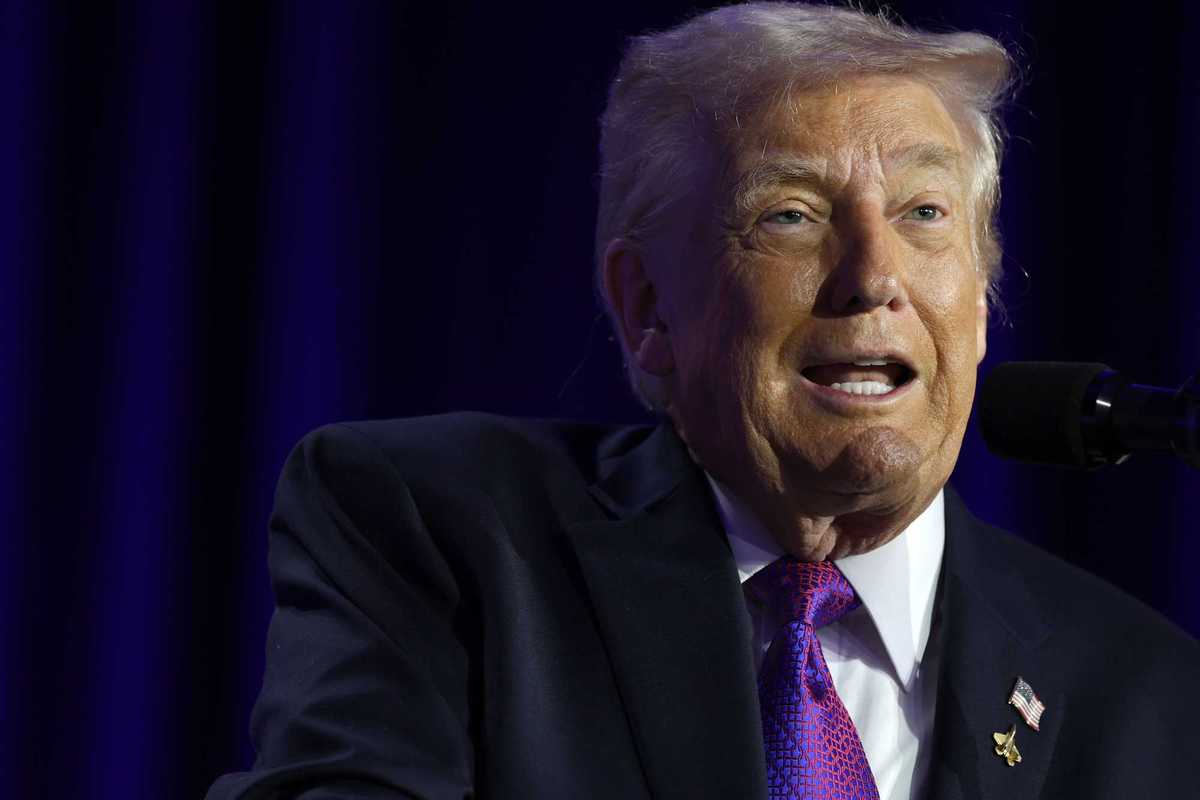Live
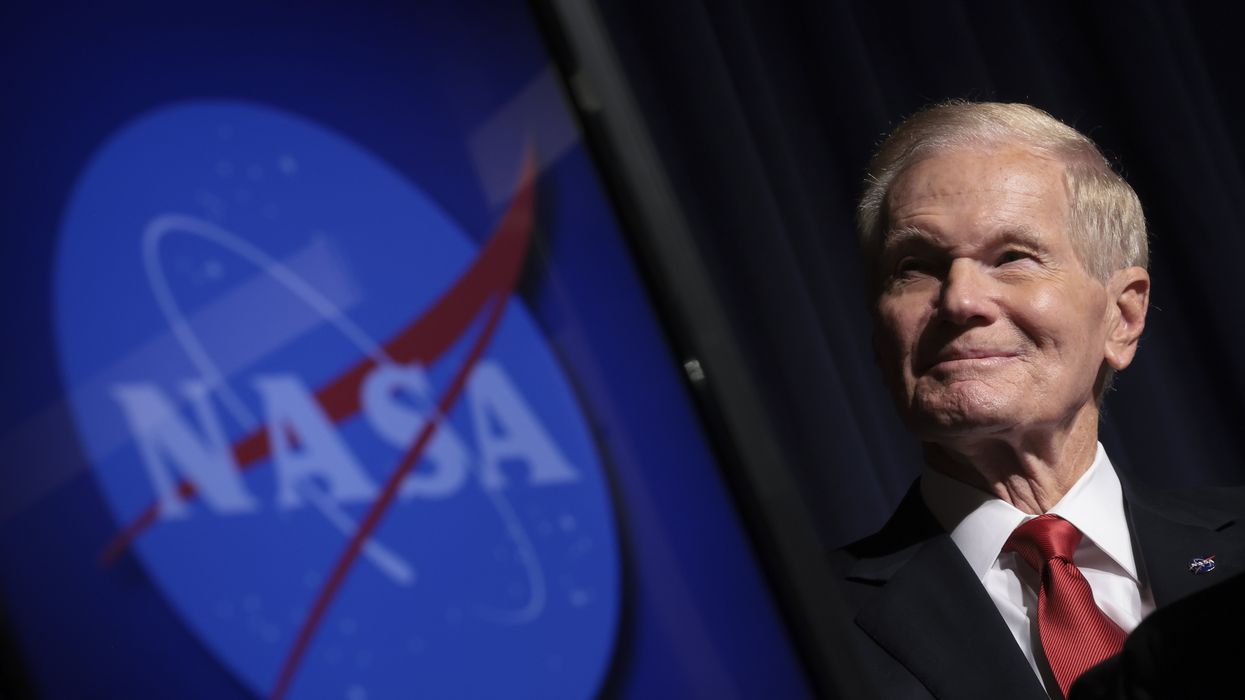
NASA chief Bill Nelson said he thinks there is life out there in the universe
Getty Images
As the famous saying goes, 'the truth is out there' – and it's proving more relevant than ever this year as news on aliens continues to arise on a weekly basis.
Today (September 14th 2023) NASA released its findings from an independent study team into UAPs – or unidentified anomalous phenomena – that it commissioned last year.
It also held press conference following the report, which aimed to inform the public more widely on what the findings mean about the origins of UAPs.
Sadly, the report doesn't appear to have shed any light on whether aliens actually exist – although a hearing in Congress earlier this year would suggest that they are real, at least according to some.
Find out more about the key points from the report and the hearing below.
Full story: Five things we learned from NASA's report on UFOs
NASA's report on UFOs may not have confirmed the existence of aliens, but it did have some pretty interesting stuff in it.
Not least, the fact that it plans to play a much more proactive role in looking for UFOs in future (or UAPs, as it now calls them)
."The top takeaway from the study is that there is a lot more to learn," NASA Administrator Bill Nelson said while releasing the report.
"The NASA independent study team did not find any evidence that UAP have an extraterrestrial origin, but we don't know what these UAP are."
NASA's hearing comes to an end – summary
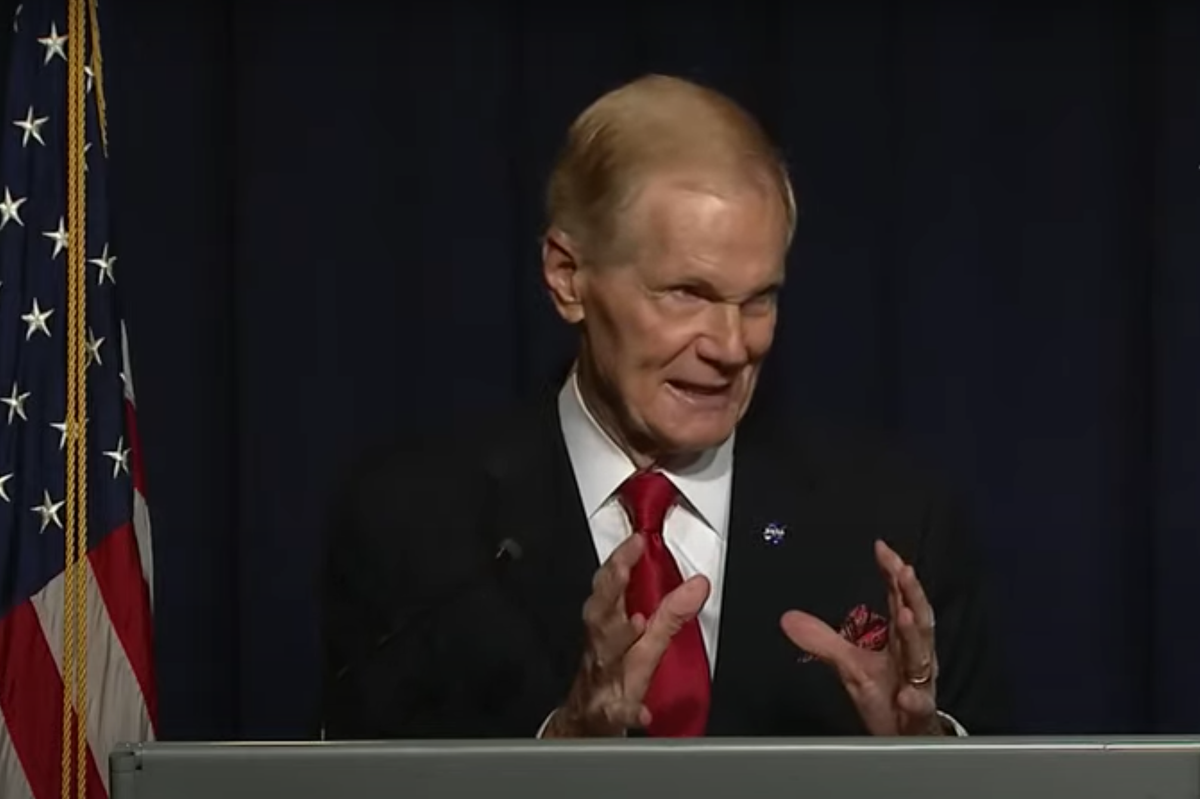
NASA chief Bill Nelson thinks there is life out there in the universe
NASA / YouTube
And with that, the briefing comes to a close. Here's a recap of what we learned:
- NASA has appointed a director of UAP research, but it is withholding that person's name.
- The agency plans to play a much more active role in looking for UAPs. This will involve using both its own advanced technology and that of the aviation industry.
- NASA chief Bill Nelson thinks there is life out there. Somewhere out there “we will discover” a similar planet to Earth, he said.
- But perhaps most importantly, there is no evidence that any of the UAPs that have been discovered in the past have alien origin... Yet.
That's all for now, folks!
NASA could eventually name its UAP director
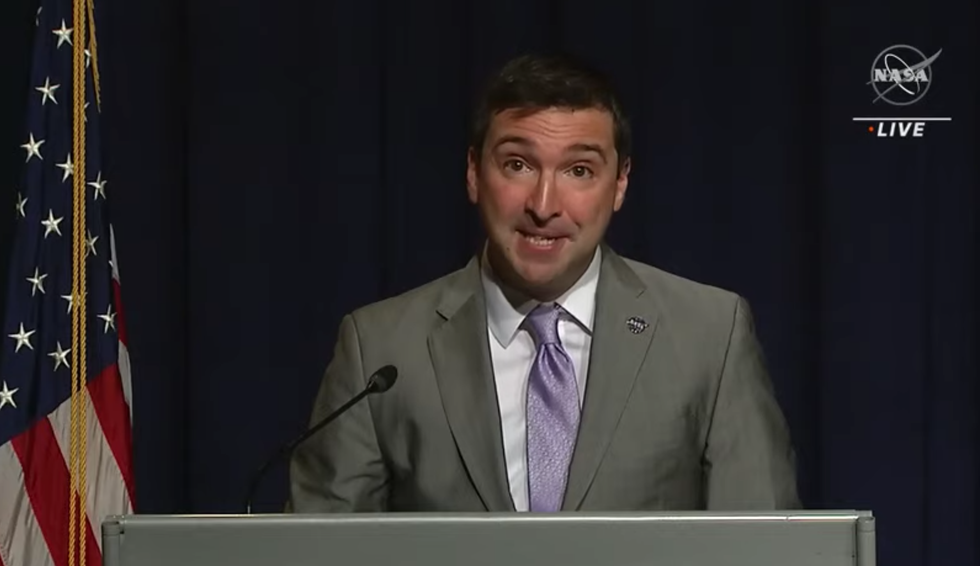
Dan Evans, NASA’s assistant deputy associate administrator for research
YouTube / NASA
A reporter suggests that withholding the identity of NASA’s new UAP chief might be in conflict with its commitment to transparency.
In response, Dan Evans, NASA’s assistant deputy associate administrator for research, said: "Let's not forget that we have only just received this report."
The person's name could "potentially" be disclosed but we "need to ensure that the scientific process and method is free", he added.
Some people are upset there were no aliens in the report...
Here's the conclusion page from the UAP report
NASA doesn't 'know the nature' of Mexico 'non-human' corpses
The panel refused to be drawn on two alleged “non-human” corpses which were presented in Mexico.
An individual named Jaime Maussan presented two 'corpses' that he claimed were dead aliens fuelling widespread speculation online and talks of a 'hoax.'
Study chair David Spergel said he has only seen reports on X/Twitter, and "we don't know the nature of those samples".
He said the Mexican government should “make the samples available to the world's scientific community.”
Dan Evans, an assistant deputy associate administrator for research, added: "One of the main things we're trying to do here today is to move conjecture and conspiracy towards science and sanity and you do that with data.”
NASA not naming UAP chief because of harassment online
The panel behind the report has faced a significant amount of harassment online while putting this body of work together.
David Spergel said people on social media “behaved badly” and “harassed” panel members.
That is part of a deeper problem, he said, where people feel they can be "nasty and hostile" online.
Dan Evans, assistant deputy associate administrator for research, added that "actual threats" were made toward their team.
"That is in part why we are not splashing the name of our new director out there".
"Science needs to be free," he added.
Fascination caused by Indiana Jones, X-Files et al has forced NASA’s hand
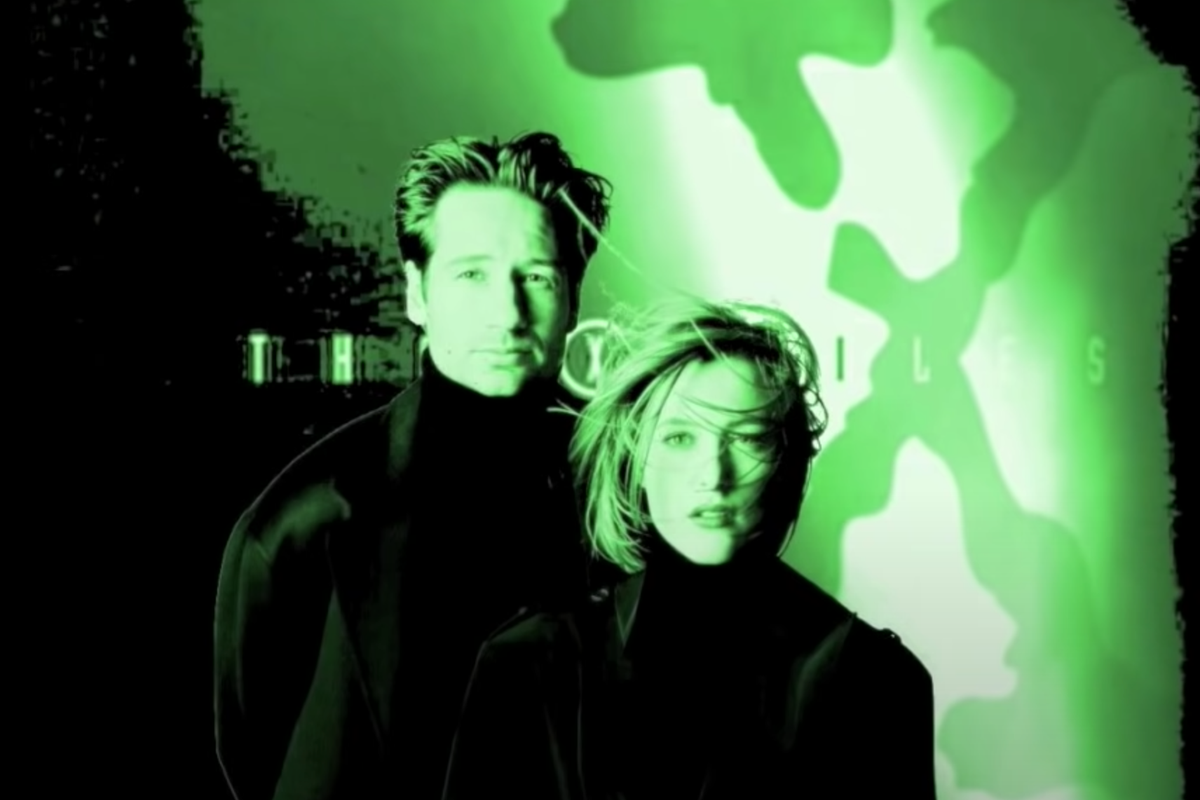
baanetland / YouTube
Ding! We have the first X-Files reference of the day.
“There’s a mindset. We all are entertained by Indiana Jones… There’s a lot of folklore out there,” said NASA chief Bill Nelson in response to a question from the BBC.
“That’s why we entered the stage, the arena, to try and get into this from a science point of view.
“I think you can blame the X-Files for a lot of this as well,” said the BBC reporter.
“That, possibly too,” said Nelson. “We, NASA, are trying to shift things from sensationalism to science.”
A 360 view from inside the UAP hearing
UAP chief has already been appointed – but NASA won't say who it is
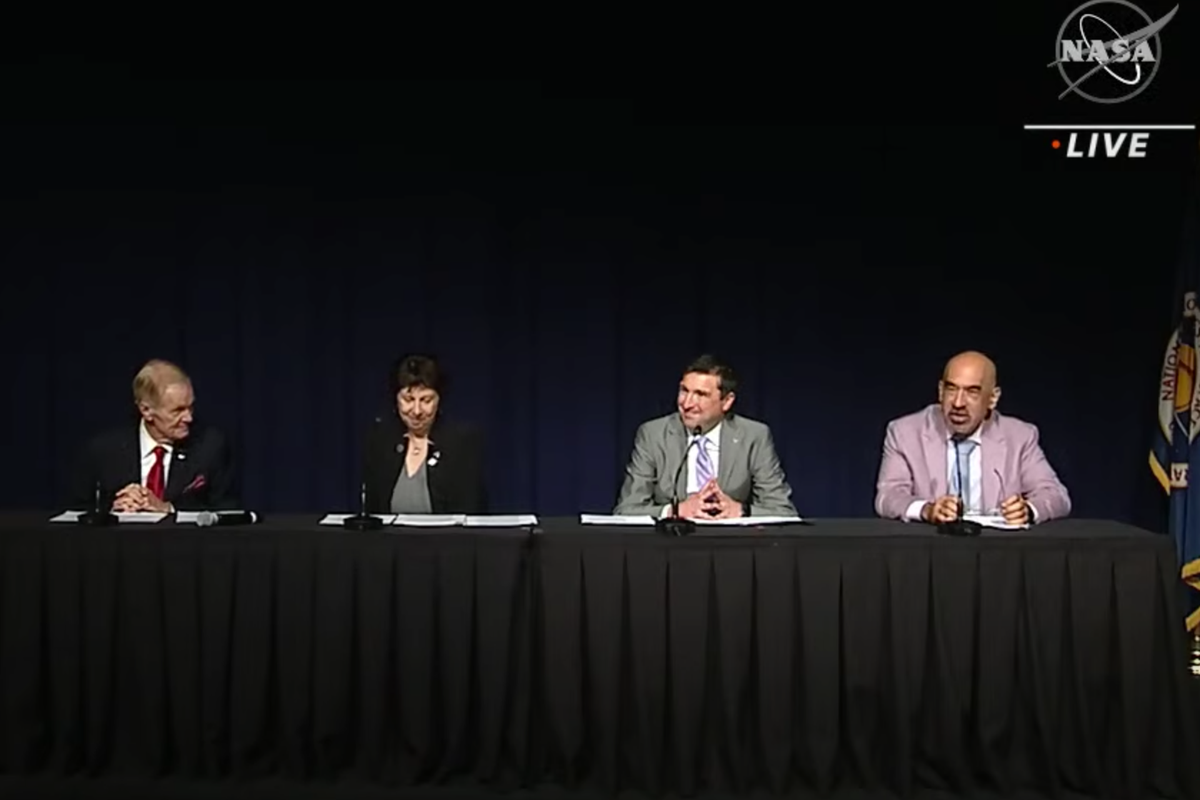
Second on the left: Nicola Fox, associate administrator, Science Mission Directorate, NASA Headquarters in Washington
YouTube / NASA
Speaking of transparency…
It turns out NASA’s new UAP chief has already been working at the organisation for some time.
“We have already appointed the person,” said Nicola Fox, associate administrator, Science Mission Directorate, NASA Headquarters in Washington.
Asked if NASA would name the official, she added: “We will not give his name out, no.”
'Whatever we find, we're going to tell you,' says NASA chief
We are moving onto questions from the floor – an independent questioner is asking whether NASA will be transparent with its findings.
“We are the American government, and we are going to be open about this,” says NASA chief Bill Nelson.
“We intend to be transparent,” he added, in response to a question about what will happen if NASA does find alien life. “You bet your boots, we will say that.”
"Whatever we find, we're going to tell you."
Stigma around UAP reporting means we are 'missing data'
Now speaking is David Spergel, chair of NASA’s UAP independent study team, and he is reiterating the point about reporting stigma.
The fact that UAP reports tend to be categorised as conspiracy theories "has limited reporting by pilots, both civilian and military, so we know there’s missing data".
“NASA always takes a scientific approach of systematic data collection… Most UAP events lack this quality of data.
He says NASA wants to create a “dataset that is both reliable and extensive”.
Aviation systems should also help look for UAPs, says report
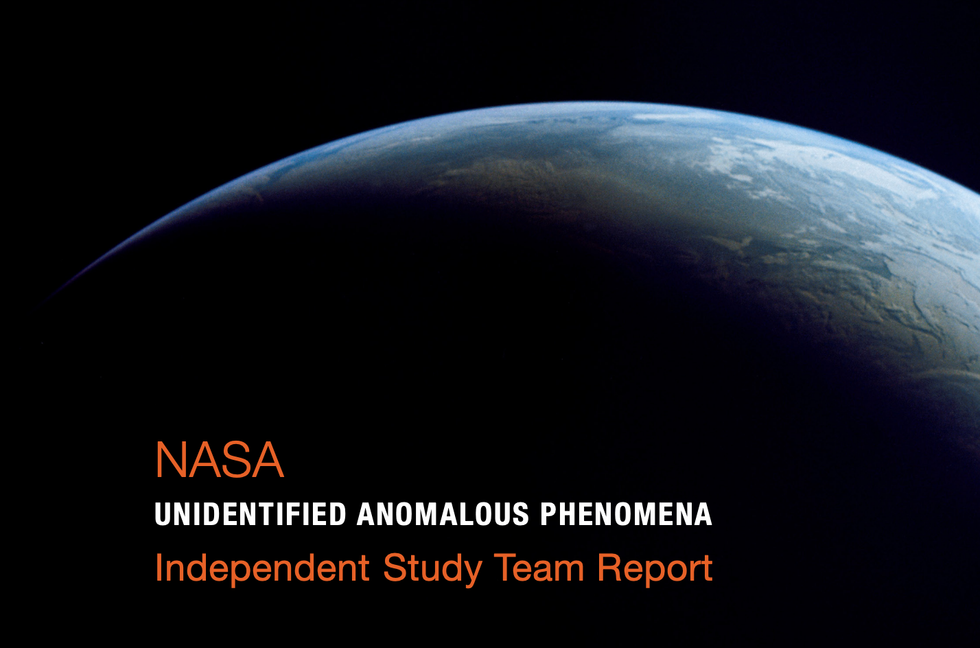
The front cover of NASA's UAP report
NASA
While the hearing gets into a bit more nitty gritty, we’ll bring you a more detail from the report.
As well as using NASA’s advanced technology, it says standard aviation reporting systems should help monitor for UAPs.
Analysis could even “be applied to future generations of air traffic management (ATM) systems”.
“We recommend that the Aviation Safety Reporting System (ASRS) for commercial pilot UAP reporting be better leveraged, providing a critical database for the whole-of government effort to understand UAP.”
NASA chief believes there is ‘life in the universe’
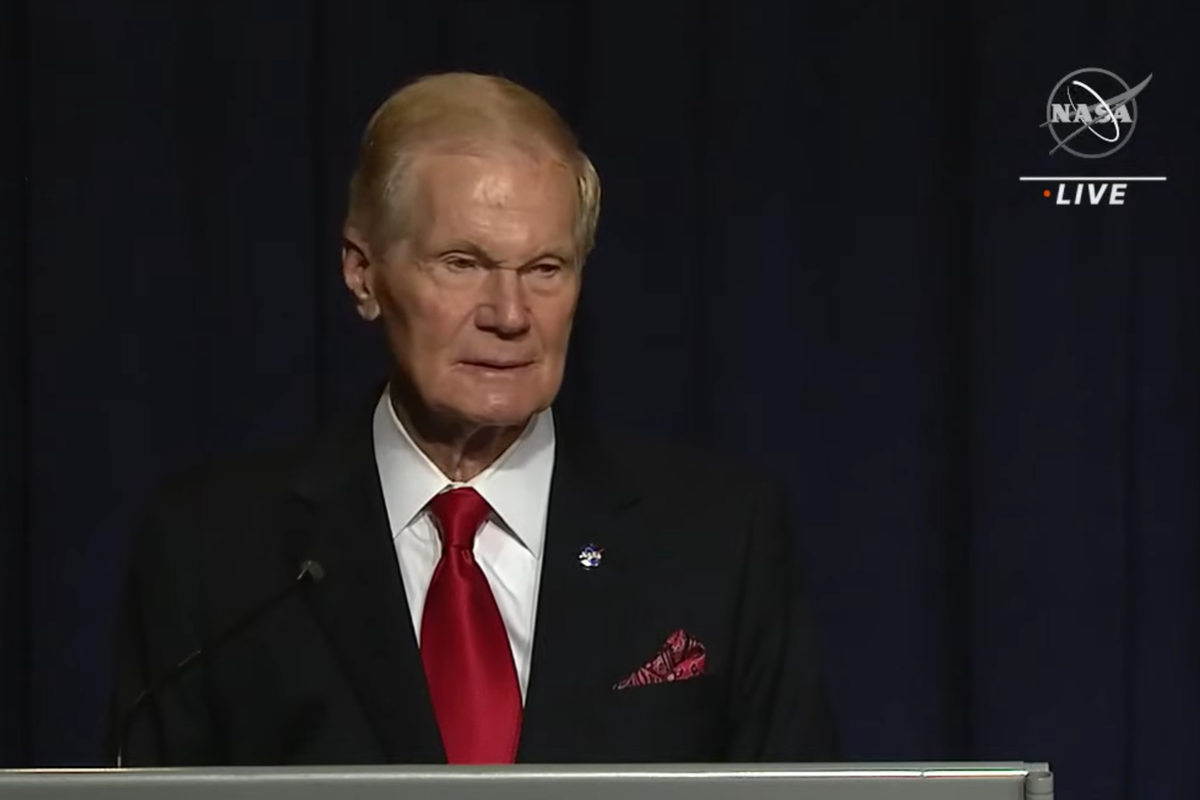
YouTube / NASA
And the hearing has started. First up is Bill Nelson, NASA’s administrator, with some opening remarks.
“We are looking for signs of life, past and present,” he said.
He added that the report was commissioned to help shift the conversation “from sensationalism to science”.
“This is the first time NASA has taken concrete action to look into UAP,” he added.
Somewhere out there “we will discover” a similar planet to Earth, he said.
“If you ask me, do I believe there is life in the universe that is so vast that it’s hard for me to comprehend how big it is? My personal answer is yes.”
Reminder, you can watch the hearing live here.
NASA will hire a UAP research chief
Meanwhile on the NASA X/Twitter feed, it has announced that it will appoint a UAP research director.
This is a newly created role. Like the contents of the report, it suggests the agency is taking UAP reports much more seriously.
NASA report continued: 'Reduced reporting stigma' needed around UAPs
NASA says it wants to reduce the stigma around the subject of UAPs.
For years UAP reports have been consigned to the realm of conspiracy theories.
But this would appear to mean the world’s biggest space agency will actively take steps to take reports seriously.
It recommends using “robust data acquisition methods, advanced analysis techniques, a systematic reporting framework and reducing reporting stigma” to that end.
Meanwhile, it also goes into some detail on the sort of technology the agency might deploy in monitoring for UAPs.
“NASA's fleet of Earth-observing satellite... state-of-the-art sensors can be directly utilised to probe the state of the local earth, oceanic, and atmospheric conditions that are spatially and temporally coincident with UAPs initially detected via other methods.”
NASA should actively help in the search for UAPs, says report
The long-awaited report into UAPs, the Unidentified Anomalous Phenomena Independent Study, has just landed. Read the whole thing here.
Among the key conclusions are that NASA should play a more active role in looking for UAPs.
“We specifically recommend that NASA utilize its existing and planned Earth-observing assets to probe the local environmental conditions associated with UAP that are initially detected by other means.
“In so doing, NASA can directly probe whether certain environmental factors are coincident with known UAP,” it says.
This is because sightings are “often serendipitous” and are made using technology which isn't built for the job, it continues.
As a result, the true nature of most sightings “remain[s] uncertain”.
“In conclusion, NASA is uniquely positioned to contribute to a robust and systematic approach to studying UAP, furthering its mission of advancing scientific knowledge, technical expertise, and exploration.”
More details to follow shortly.
Who is Jaime Maussan?
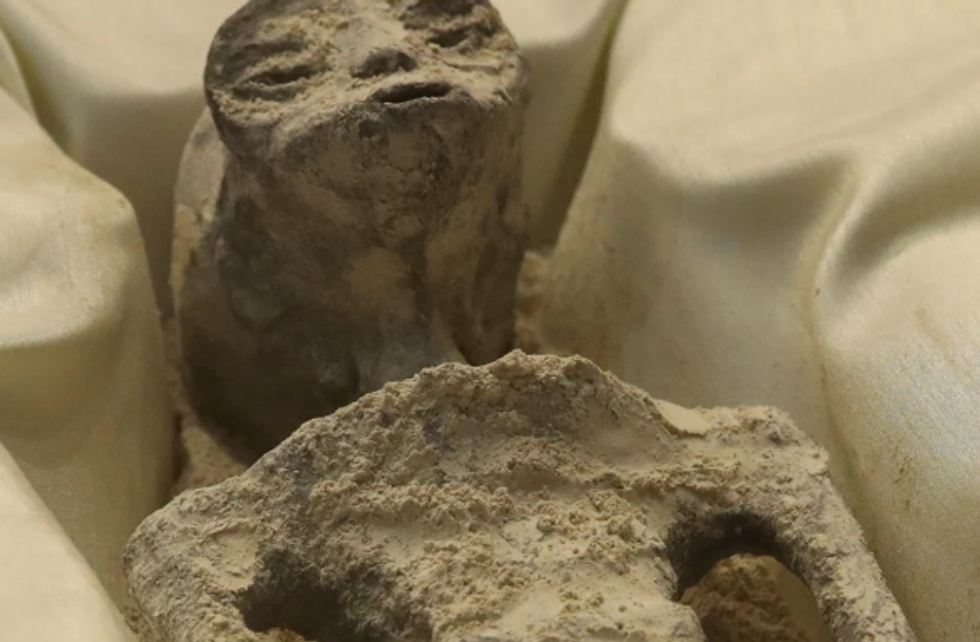
Reuters
The mysterious alien corpses that were revealed before Mexican Congress on Tuesday has left many wondering who the man that unveiled them is.
Jaime Maussan, a self-proclaimed expert on UFOs and Extra Terrestrial beings, appeared before Congress earlier this week to display the two alleged mummified "alien corpses".
During the hearing he claimed the corpses to be around 1000 years old and that more than 30 per cent of the corpses' DNA to be "unknown".
Who will be involved in the Nasa hearing?
Those listed on the official Nasa site are as follows:
- NASA Administrator Bill Nelson
- Nicola Fox, associate administrator, Science Mission Directorate, NASA Headquarters in Washington
- Dan Evans, assistant deputy associate administrator for research, NASA’s Science Mission Directorate
- David Spergel, president, Simons Foundation and chair of NASA’s UAP independent study team
You can watch the entire stream here.
Nasa set to publish report on UAPs
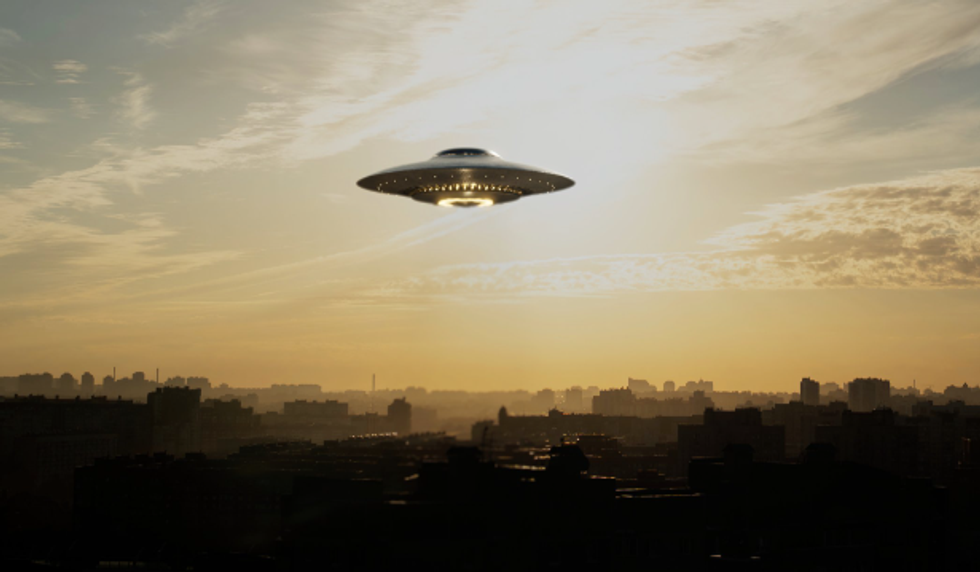
iStock
NASA is set to reveal results from its unidentified anomalous phenomena (UAP) independent study, which could very well confirm or deny the existence of aliens.
A UAP is said to be a new term to describe UFOs that can't be identified.
The UAP study team is made up of 16 community experts across various areas "on matters relevant to potential methods of study for unidentified anomalous phenomena".
Read more here.
Sign up to our free Indy100 weekly newsletter
Have your say in our news democracy. Click the upvote icon at the top of the page to help raise this article through the indy100 rankings.
Top 100
The Conversation (0)
